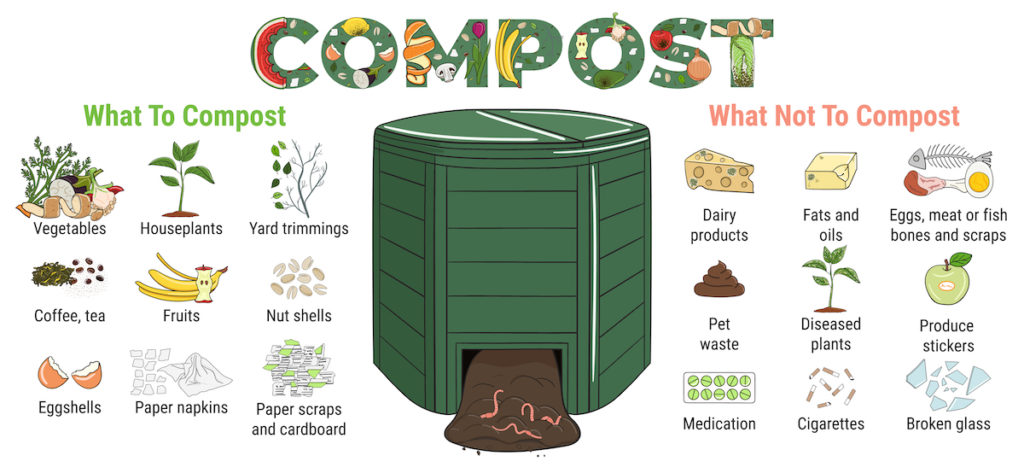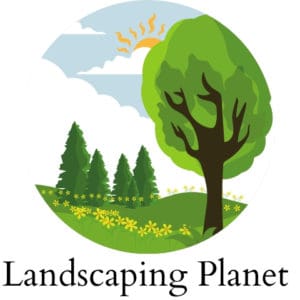Numerous commercial fertilizers are available in the market that are specially formulated to meet the requirements of specific plants. However, they may contain more nutrients than necessary and may be costly. That is why many gardeners are looking for cheap ways to fertilize their gardens.
The cheapest way to fertilize your lawn is by using organic waste products such as mammalian urine, livestock manure, or compost. These materials are free, widely available, and easy to use. In addition, they contain numerous essential nutrients that can aid in overall plant health.
While using such materials can be free or significantly cheaper, it may not always be the best choice. In this article, I will weigh in on the pros and cons of using these methods.
What Are the Cheapest Fertilizers for Your Lawn?
Nowadays, many home gardeners benefit from the convenience of using commercially available fertilizers that they can buy online or from nearby gardening stores. However, some are becoming more environment-conscious and economical when selecting fertilizers.
The cheapest fertilizers for your lawn include readily available organic materials in your household or in your backyard. There are plenty of valuable materials at home, such as dried leaves, dried coffee grounds, and grass clippings, that would otherwise just go to waste.
When choosing an organic material as cheap fertilizer, consider two things: whether they are for immediate use or can be used as composting materials.
Waste for Immediate Use
These organic waste materials can be applied directly into the soil with little to no treatment and waiting time. For instance, you can spread fresh cattle or poultry manure directly on the lawn. On the other hand, you may need to dilute mammalian urine with water before application.
Used coffee grounds can also be dried and added to the soil as fertilizer. It may take some time to dry them, but they can be applied directly into the soil once dried.
Composting Material
Many waste products need to undergo treatment or decomposition before you can use them as fertilizers. These processes take a long time but are essential to break down the waste materials’ components into nutrients that plants can easily consume.
Here are some waste materials that can go into your compost pile:
- Dried leaves
- Fresh organic grass clippings
- Paper products, including cardboard and toilet paper
- Organic manure
- Hair
- Leftover plant-based food scraps like fruits and vegetables
- Human or animal hair
- Sawdust
- Dried coffee grounds
- Crushed eggshells

It is important to understand that while using organic waste materials can be the cheapest way to fertilize your lawn, they may not exactly be the best.
What Nutrients Does Your Lawn Need?
Green lawns look healthy and attractive. However, maintaining the lush color of your lawn grass could be quite a challenge and may even be costly. Therefore, it is necessary to understand what kind of nutrients your lawn needs.
The primary nutrient your lawn needs is nitrogen. It helps make the blades of your grass thicker, healthier, and greener. Therefore, your lawn can benefit from nitrogen-rich fertilizers. In addition, you will also need a good amount of phosphorus and potassium.
However, buying nitrogen-rich fertilizers like urea may be costly and result in some environmental problems. Much of the nitrogen in urea may be subjected to leaching and getting into the groundwater, resulting in the possible contamination of nearby bodies of water.
Although lawns need a good amount of nitrogen, excessive amounts can lead to problems, such as leaf burn, stress, or even vulnerability to some infections and diseases. That is why using organic waste materials or compost with moderate amounts of nutrients is safe.
Check out my article about 17 fertilizers that are high in nitrogen. I’ve also included some waste-based fertilizers that are cheap to get.
The Pros of Using Organic Waste Materials As Fertilizer
The rise in the prices of commercial fertilizers proportionally affects the prices of crops and other kinds of food. It is also becoming a problem for hobbyists who tend to home gardens and do not make money out of their plants.
As a result, many home gardeners resort to organic waste materials for low-cost fertilizers. Here are some advantages:
Cost Ranges From Free to Inexpensive
If you have a poultry or dairy farm, you can get a steady supply of fresh manure that you can readily apply to your lawn. Poultry manure packs more nitrogen than cattle manure. It is one efficient way to manage farm waste and get quality fertilizer for free.
Typically, you would only need to spread up to a half-inch (1.25 cm) deep of manure on your lawn. If you have too much waste, you may even sell it for roughly $20 – 30 per yard or 10 x 10-foot area at a 3-inch depth (304 x 304-cm area at a 7.6-cm depth).
On the other hand, if you don’t have your own supply, you can purchase some from nearby farms for about the same price plus the transport cost, depending on the distance.
Meanwhile, making homemade compost is an excellent way to make use of your organic waste materials and get free, nutrient-rich fertilizer.
The product’s weight by the end of the composting period can be two to eight times lighter than the original pile. You need to apply around 2 inches (5 cm) of compost on your soil every year—in spring or fall, depending on your grass type.
If you happen to have more than what you need for your lawn, you can sell the excess compost for around $15 – 50 per yard, depending on the quality of your compost. However, if you don’t have enough space and time for composting, you can buy ready-made organic compost at roughly the same price.
Environment-Friendly
Using organic waste materials as fertilizer has plenty of benefits to the environment. It is one of the reasons why some hobbyists are resorting to composting even though it provides fewer nutrients than inorganic fertilizers.
Let’s take a look at how using organic waste or compost can help the environment:
Food Waste Disposal and Management
Food waste disposal and management are a growing concern in the US due to the increasing number of landfills closing up. Households turning food scraps into compost is one way to help reduce the size of this problem while also reducing gardening expenses.
Even if not all food scraps are suitable for composting, the amount of waste that can go into your compost can still significantly reduce the amount of garbage coming out of your household. There are also cheap compost bins that can make composting food scraps at home more convenient.
Preservation of Ground Water Quality
Many commercial and inorganic fertilizers have residues or substances that can wash out deep into the ground and contaminate groundwater. In addition, during rainy seasons, these nutrients are carried along with runoff water into the sewers.
On the other hand, using organic waste materials or compost improves water retention and binds essential nutrients for easier plant absorption. Moreover, there aren’t too many excess nutrients that can be washed off.
Prevents Soil Erosion
Applying compost into your lawn can help prevent soil erosion even during heavy rainfall. It can help retain your lawn shape and integrity and protect your grass as it grows roots. That way, you’ll be able to maintain a lush garden or yard without worrying that it will wash away during a storm.
The Cons of Using Organic Waste Materials As Fertilizer
Organic waste materials and compost are good and cheap fertilizers. However, they are not exactly the best. There are some drawbacks to using them.
Unpleasant Odor
Using fresh manure on your lawn provides nutrients that can break down into nitrogen more quickly than composted manure. However, it may bring about an unpleasant odor that may be unfavorable to you or your neighbors. In addition, it may attract some carnivorous animals into your garden.
Some gardeners dry out the manure or add them into the compost pile and dilute urine in water before applying them into the garden soil. These methods can help minimize or remove the foul odor from these waste materials.
Risk of Spreading Toxins or Diseases
Another downside of applying fresh manure or urine on your lawn is the risk of spreading pathogens that can result in diseases that can affect your plants, yourself, or your pets. Composting these organic materials can help break down the pathogens into non-toxic substances that can cancel out the risks.
Takes Time To Prepare
Composting organic waste materials like paper scraps, sawdust, grass clippings, and more may take several months to years before they are ready to use. Often, gardeners need to create multiple batches of compost piles to ensure a steady supply when they need them.
It is a tedious process that sometimes outweighs the benefit of saving money. That is why some people would instead buy commercial fertilizers or ready-made compost.
Nutrient Imbalance
Organic waste materials converted into compost pack a lot of nutrients necessary for your lawn’s needs, but the amount of each nutrient may not be sufficient. For instance, depending on the types of materials incorporated into the compost pile, there may not be enough nitrogen to make the grass greener.
Nitrogen is the primary nutrient required by lawn grass. If there isn’t enough of it from your compost, you may need to purchase additional fertilizers.

